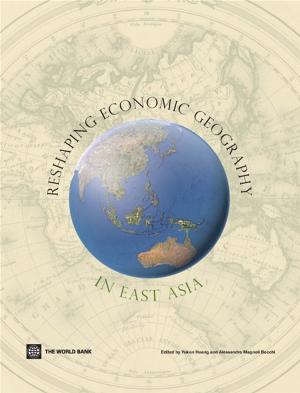Competitiveness And Growth In Brazilian Cities: Local Policies And Actions For Innovation
Nonfiction, Social & Cultural Studies, Political Science, Politics, City Planning & Urban Development| Author: | Zhang Ming | ISBN: | 9780821381571 |
| Publisher: | World Bank | Publication: | November 19, 2009 |
| Imprint: | Language: | English |
| Author: | Zhang Ming |
| ISBN: | 9780821381571 |
| Publisher: | World Bank |
| Publication: | November 19, 2009 |
| Imprint: | |
| Language: | English |
The book contributes to answering the questions raised by mayors, governors, and federal government officials in Brazil: "What can cities do to improve economic performance and create jobs?" The question is approached through a review of theories and policy options for city competitiveness, preliminary benchmarking of Brazilian cities.The book concludes that to become and stay competitive, cities need to strive to reduce the cost of doing business by improving services, infrastructure, and reducing bureaucracies. But for a middle-income country like Brazil, which needs to be economically competitive in a globalized environment, this is not sufficient. Cities also need to strive to add value to local businesses. A crucial part of the strategy should be to create and sustain an environment that stimulates local firms to innovate and learn from each other, to nurture and facilitate the creation of synergies generated by the presence of interconnected economic clusters in the city, and to provide incentives for all local players to continuously upgrade the level of competitiveness to become better and the best.With regard to local policy actions, this book highlights the cluster approach to competitiveness, with its focus on facilitating private sector collaborations for collective efficiency organizing and facilitating private and public institutions to arrive at a common cluster vision; identifying opportunities for growth and collaboration; promoting joint actions such as co-information, co-learning, co-marketing, and co-purchasing; and jointly building economic foundations such as R&D capacities, infrastructure, skills upgrading, and public-private sector support institutions. This book has provided many examples of actions that may be undertaken at the local level, but it also emphasizes the critical importance for cities to pursue a unique strategy based on their comparative and competitive advantages.
The book contributes to answering the questions raised by mayors, governors, and federal government officials in Brazil: "What can cities do to improve economic performance and create jobs?" The question is approached through a review of theories and policy options for city competitiveness, preliminary benchmarking of Brazilian cities.The book concludes that to become and stay competitive, cities need to strive to reduce the cost of doing business by improving services, infrastructure, and reducing bureaucracies. But for a middle-income country like Brazil, which needs to be economically competitive in a globalized environment, this is not sufficient. Cities also need to strive to add value to local businesses. A crucial part of the strategy should be to create and sustain an environment that stimulates local firms to innovate and learn from each other, to nurture and facilitate the creation of synergies generated by the presence of interconnected economic clusters in the city, and to provide incentives for all local players to continuously upgrade the level of competitiveness to become better and the best.With regard to local policy actions, this book highlights the cluster approach to competitiveness, with its focus on facilitating private sector collaborations for collective efficiency organizing and facilitating private and public institutions to arrive at a common cluster vision; identifying opportunities for growth and collaboration; promoting joint actions such as co-information, co-learning, co-marketing, and co-purchasing; and jointly building economic foundations such as R&D capacities, infrastructure, skills upgrading, and public-private sector support institutions. This book has provided many examples of actions that may be undertaken at the local level, but it also emphasizes the critical importance for cities to pursue a unique strategy based on their comparative and competitive advantages.















